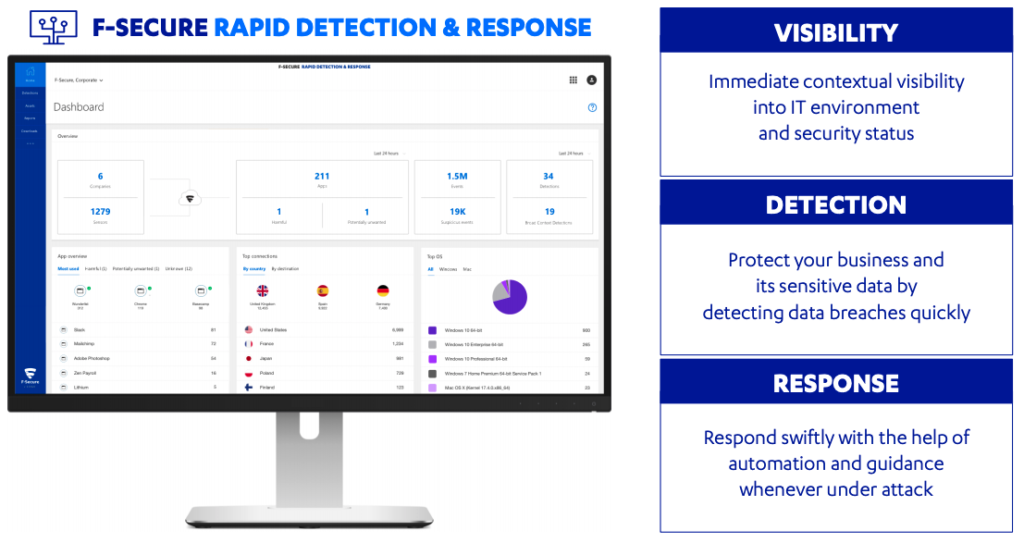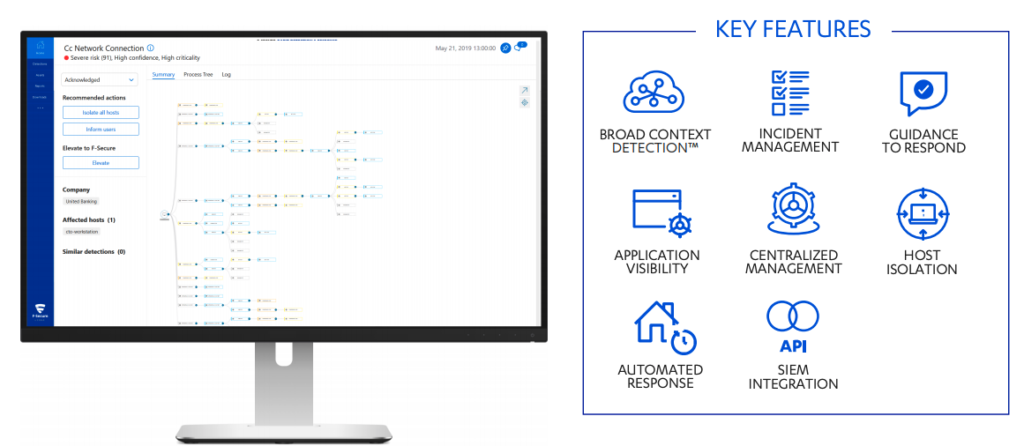Your Cyber Attack Defense Strategy
Get a free virus scan of you computer cyber security company F-Secure now!
Endpoint Security Solutions
Endpoint protection from advanced cyber threats
An Endpoint is a device connected to a network. Endpoints include desktops, laptops, tablets, mobile phones, printers, etc. Consequently, Endpoint security is considered cyber security’s frontline. It is the first-place organizations look to secure, and the first-place bad actors look to infiltrate.
Companies of all sizes face threats from disgruntled employees, organized crime, and even nation-states looking to sow chaos. According to a 2020 study by the Ponemon Institute, 68% of organizations experienced one or more endpoint attacks that successfully compromised data and/or their IT infrastructure.
Stratus Concept Endpoint Security Solutions
Stratus Concept offers inexpensive, high-quality, and dependable endpoint security solutions. Protect endpoints from a wide range of IT security threats, including malware, spam, and malicious desktop and mobile attacks on Windows, Android, and iOS. With Stratus Concept, you can easily manage endpoint security through a central security console.
Stratus Concept endpoint security includes:
• Threat Prevention
• Insider Threat Protection
• Advanced Endpoint Control
• Data Protection
• Data Loss Prevention
• User Control
• Data Classification
• Network Access Control
• Disk, Endpoint, and Email Encryption
• Application Whitelisting or Control
• Endpoint Detection and Response
To discuss your specific endpoint security needs, please request a callback from Stratus Concept.
- Using application control to block the download and use of unsafe or unauthorized applications.
- Encryption to help secure data and prevent loss.
- Incoming email and file scanning.
Endpoint security tools include:
- Email scanning, detection, and protection.
- Scanning for malicious downloads.
- Application and device control.
- Advanced machine monitoring and learning.
- Protection from cyber exploits.
- Data loss protection.
- Reports and alerts.
- Incident investigation and remediation.
Endpoint security protects network entry points such as desktops, laptops, mobile phones, and tablets from cyber threats. Endpoint security solutions protect employee devices on a network or in the cloud from cybersecurity threats in business.
Endpoint security is the practice of securing network entry points such as desktops, laptops, and mobile devices from being exploited by cybersecurity threat actors. Cybersecurity software vendors design endpoint security solutions to protect network entry points from cybersecurity threats.
The five key things to look for in an endpoint security solution include:
- Cyber-threat detection and prevention.
- Continuous monitoring, recording, and learning.
- Rapid and automated cyber threat response.
- Incident investigation and remediation support.
- Centralized application and device control.
Modern EPPs leverage the cloud, machine learning, and artificial intelligence to identify and catalog patterns of threat activity. Using the cloud minimizes bloat on endpoint devices. EPPs provide system administrators with centralized control of endpoints and deploy software to devices via SaaS, local device installs, or both. Once an endpoint is secured, updates are pushed to the endpoints as necessary, authenticates are managed for each device, and administrators enforce corporate policies from a central console.
EPPs can detect and respond rapidly to malware and other threats. Most modern EPPs include Endpoint Detection and Response (EDR). EDR enables the detection of more advanced threats, such as polymorphic attacks, fileless malware, and zero-day attacks, using continuous monitoring endpoints.
Endpoint security solutions are available via on-premises or cloud-based models. While cloud solutions scale easier, regulatory/compliance requirements may make on-premises security a preferred option.

